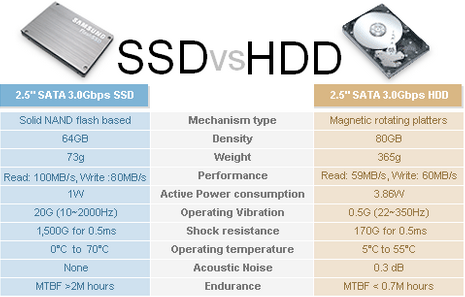When it comes to choosing storage options for your computer, there are two main types to consider: Solid-State Drives (SSDs) and Hard Disk Drives (HDDs). Both have their own unique advantages and disadvantages, and understanding the differences between the two can help you make an informed decision on which is best for your needs.
What Are Solid-State Drives (SSDs)?
SSDs are a newer type of storage device that use flash memory to store data, making them much faster and more reliable than traditional HDDs. They are also much more energy efficient, as they have no moving parts that can wear out over time. This means that SSDs are not only faster, but also quieter and more durable than HDDs.
What Are Hard Disk Drives (HDDs)?
HDDs, on the other hand, are the traditional storage option that have been around for decades. They use spinning disks to read and write data, which can result in slower speeds and a higher risk of mechanical failure. However, HDDs are typically much cheaper than SSDs, making them a popular choice for budget-conscious consumers.
Speed and Performance
One of the biggest advantages of SSDs over HDDs is their speed. Because SSDs have no moving parts, they are able to access data much faster than HDDs, resulting in quicker boot times, faster file transfers, and overall better performance. This makes SSDs the preferred choice for users who require high speed and performance from their storage devices.
Reliability and Durability
SSDs are also more reliable and durable than HDDs due to their lack of moving parts. This means that SSDs are less prone to mechanical failures and are more likely to last longer than HDDs. Additionally, SSDs are less susceptible to damage from drops or bumps, making them a better choice for users who need a storage device that can withstand rough handling.
Storage Capacity
When it comes to storage capacity, HDDs typically offer more storage space for the price compared to SSDs. This can make HDDs a better option for users who need a large amount of storage for their files and applications without breaking the bank. However, as SSD technology continues to evolve, the price per gigabyte of storage is decreasing, making SSDs a more viable option for those who need both speed and storage capacity.
Price
As mentioned earlier, HDDs are generally cheaper than SSDs, especially when it comes to larger storage capacities. This makes HDDs a more attractive option for budget-conscious consumers who may not need the speed and performance benefits of an SSD. However, as SSD technology becomes more widespread, the price difference between the two types of drives is becoming less significant, making SSDs a more competitive choice for users who want the best of both worlds.
Conclusion
When it comes to choosing between SSDs and HDDs, there are a number of factors to consider, including speed, reliability, storage capacity, and price. While HDDs may be more affordable and offer larger storage capacities, SSDs are becoming increasingly popular due to their faster speeds, better performance, and enhanced durability. Ultimately, the choice between SSDs and HDDs will depend on your specific needs and budget, but understanding the differences between the two can help you make an informed decision that suits your requirements.
Whichever storage option you choose, both SSDs and HDDs have their own unique strengths and weaknesses, so it’s important to weigh the pros and cons of each before making a decision. Whether you prioritize speed, reliability, storage capacity, or price, there is a storage solution out there that will meet your needs and provide you with the performance and functionality you require for your computer or device.

